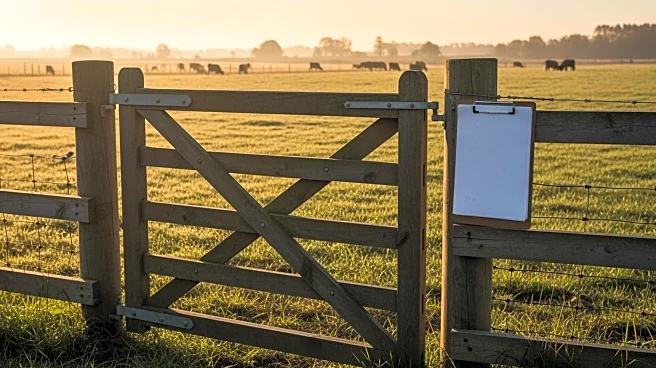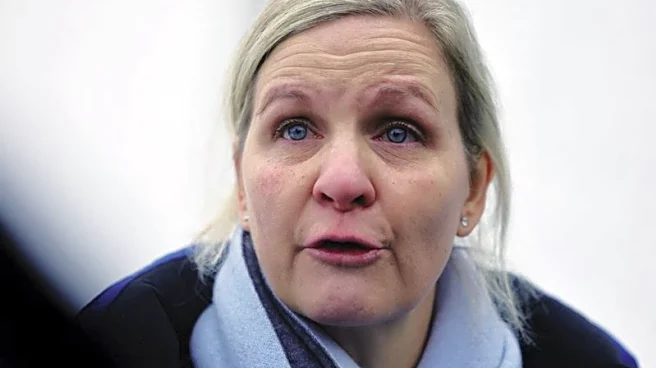What's Happening?
The Wisconsin Department of Agriculture, Trade, and Consumer Protection (DATCP) has revised its proposed livestock fee increases following significant feedback from the agricultural community. Initially, the department suggested substantial fee hikes,
such as increasing fees for Class A animal markets from $420 to $7,430, representing a 1,700 percent increase. Another proposal involved raising fees for intermediate handling facilities from $140 to $1,360, an 871-percent increase. These changes were intended to cover program costs and budget gaps, as the fee schedule had not been updated since 2009. However, during a public comment period, stakeholders expressed concerns that such increases could pressure agricultural businesses and potentially drive farmers to conduct business outside Wisconsin. In response, DATCP announced a revised proposal that adjusts fees to account for inflation over the past 17 years, with fees ranging from 40 to 50 cents up to a few hundred dollars.
Why It's Important?
The revision of the fee proposal is significant for Wisconsin's agricultural sector, as it addresses concerns about the financial burden on farmers, livestock dealers, and truckers. The initial fee increases could have led to higher operational costs, potentially affecting the competitiveness of Wisconsin's agricultural businesses. By listening to industry feedback and adjusting the fees, DATCP aims to maintain a fair business environment and prevent the outflow of agricultural activities to neighboring states. This decision reflects the importance of balancing budgetary needs with the economic realities faced by the agricultural community, ensuring that the sector remains viable and competitive.
What's Next?
DATCP will post the updated fee structure on its website, allowing stakeholders to review the changes. The agricultural community, including groups like the Wisconsin Farm Bureau and Wisconsin Cattlemen’s Association, will likely continue to monitor the implementation of these fees to ensure they align with industry needs. Additionally, the introduction of two proposed bills related to the fee adjustments indicates ongoing legislative involvement in addressing agricultural concerns. Stakeholders may engage in further discussions with lawmakers to ensure that future policy decisions support the sustainability and growth of Wisconsin's agricultural sector.
















